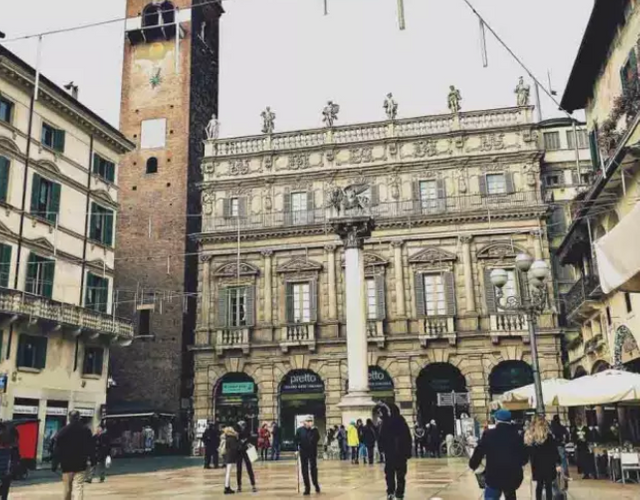Transportation: From Verona Railway Station (station name: Verona Porta Nuova), there are many direct buses to the city center. Look for the keywords Arena or Piazza Brà on the stop sign. It takes 10 minutes by car; if walking, it takes about 20 minutes (1.5km).
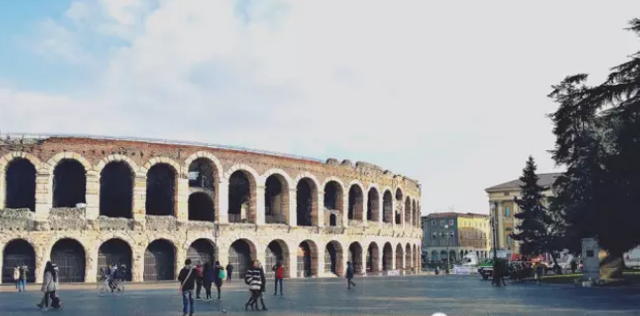
Ancient buildings in the center of Verona can be seen everywhere, worthy of the name of a historical old town. At this point, I have to admire the Italian government's spare no effort to protect the monuments and Italians' appreciation of their own culture.
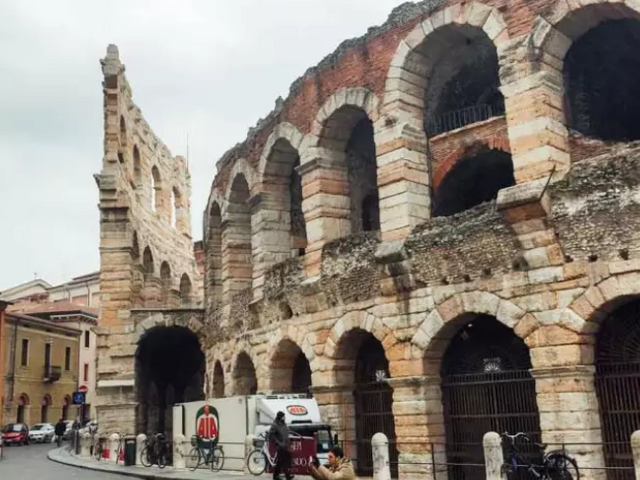
Piazza Bra | Piazza Brà
The symbol of Piazza Bra is the Arena. If you come here by bus, get off the bus across the road, and you will see this giant in front of you when you turn around. You can imagine the shock.
▲Similar in structure to the Colosseum in Rome, but the Verona Arena lost one floor and collapsed in the 1117 earthquake
▲The original third layer can be seen from the side
Since the arena is well-preserved inside, it is still in use, and regular events are held (rest assured, not to throw gladiators and lions in). Its main modern use is the opera house. This arena can accommodate nearly 30,000 people when it is built. Now for safety reasons, it is restricted to 15,000 people. It is still the world's largest open-air opera house. Most of the works performed here are masterpieces, such as Puccini and Verdi's masterpieces at the Opera Festival every summer.
image
▲The scene of the opera "Aida"
Visit information
Address: Piazza Brà, 1, Verona
Ticket price: 6 euros
Official website: http://www.arena.it/arena/it
(Tickets for the Opera Festival can be purchased online, the program schedule for 2021 has been announced, I hope it can proceed smoothly)
The arena is surrounded by gorgeous palaces, such as Gran Guardia and Palazzo Barbieri. Find a cafe on the square to sit outside, drink coffee and watch the scenery.
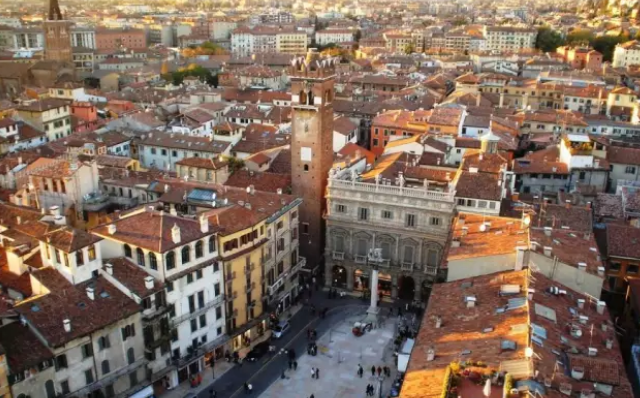
Walk along Via Mazzini until you reach the end, and on your left is the long and narrow Piazza delle Erbe (Piazza delle Erbe).
Baicao Square | Piazza delle Erbe
Piazza delle Erbe is the oldest square in Verona, built during the Roman Empire. The oldest building on the square is the fountain, and the sculpture above it is called Madonna Verona (Madonna Verona). image
▲There are many small vendors selling souvenirs in the square on weekdays
The sculpture of St. Mark's flying lion on the marble column is the symbol of the Republic of Venice
At the end of the Via Giuseppe Mazzini shopping street, on the left is Baicao Square, and on the right is another shopping street, Via Cappello, where Juliet’s former residence (Casa di Giulietta) is also located. Juliet’s balcony (Balcone di Giulietta) and sculptures are inside.
Juliet's House | Casa di Giulietta
Shakespeare's famous book "Romeo and Juliet" has made this a holy place for lovers, and Juliet's balcony has become a place for people to take pictures. Hang the concentric lock and leave the motto of love.
▲Oh, Romeo, Romeo, why are you Romeo?
O Romeo, Romeo, wherefore art thou Romeo?
▲It is said that touching the right chest of the bronze statue of Juliet will bring good luck to love. People who come here to pray for good luck have touched her right chest shiningly.
There is a replica of Juliet’s original statue in Ningbo. It was a gift from the Verona government and placed in Liangzhu Park. I wonder if the right breast was touched?
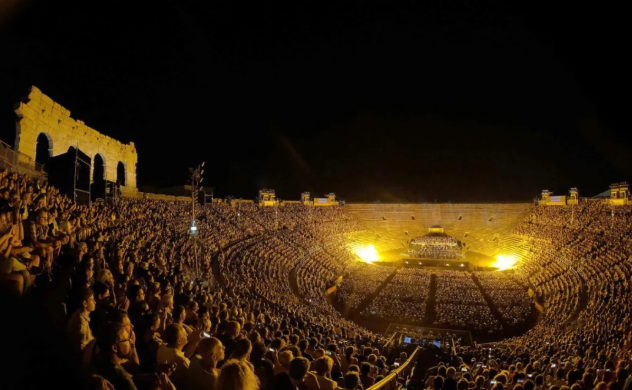
Visiting information:
Opening hours: Tuesday-Sunday 9:00-18:00; closed on Monday
Address: Via Cappello 23, Verona
Ticket price: 6 euros
